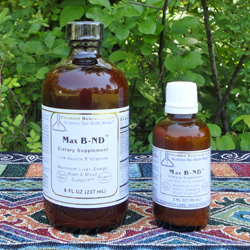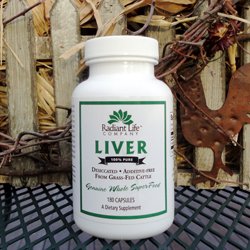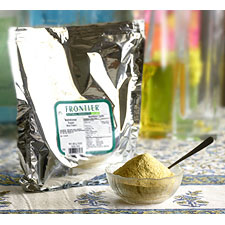B-Vitamins are crucial for optimal health, energy, handling stress, liver detoxification, heart health and mood balance. These eight water soluble vitamins work as a team to promote healthy nerves, skin, eyes and hair, yet deficiencies are very common.
3 ways B vitamins are commonly lost/easily depleted:
- Stress The biochemistry of stress is fairly complex, involving the production and release of hormones into your bloodstream. B vitamins help to regulate this biochemical function. In fact, many of the symptoms of vitamin B deficiency are those that are also associated with stress: anxiety, nervousness, depression irritability and so on. A lack of B vitamins affects the manufacture of neurotransmitters, affecting the nervous system, contributing to stress and anxiety. Vitamin B complex can reduce stress, but only if your stress is due to a deficiency. This is more common that most people are aware.
- Diuretics can cause deficiencies in water-soluble vitamins. Every one of the B vitamins is involved in cell metabolism. Thiamine supports the immune system and plays a key role in cell metabolism. Thiamine deficiency causes depression, muscle weakness and memory loss. Folic acid can also be depleted through diuretics, which may lead to anemia. Because they are soluble in water, B vitamins are quickly leached from the body. They need to be replaced on a regular basis.
- Carbohydrate consumption Although whole grains provide B vitamins in abundance, they are discarded during the refining process. Refined carbohydrates are devoid of the bodybuilding elements essential to life. Eating refined carbohydrates can deplete your body's precious reserves of vitamins, minerals and enzymes, as digestion of refined carbohydrates requires your body's own stores of vitamins, minerals and enzymes to be utilized for proper metabolism. In addition, eating refined carbohydrates causes blood sugar surges, which in turn depletes B-complex vitamins. A viscious cycle of which came first, the chicken or the egg ensues!
B vitamins work together to assist your body with carbohydrate metabolism, provided you are attempting to digest whole foods. In nutrient-dense foods, sugars and carbohydrates, are linked with vitamins, minerals, enzymes, protein, fat and fiber. However, when B vitamins are absent in your body, the breakdown of carbohydrates cannot take place. Eating too many refined carbohydrates can easily deplete, rather than add to, your body's reserves of these precious nutrients. Because B-vitamins are water soluble, they are not stored by your body. The importance of consistently consuming nutrient-dense foods that contain B vitamins cannot be underestimated! B vitamins are found in unrefined whole grains, fresh fruits, vegetables, nuts, legumes, seafood, and organ meats.
Why do we need all of these B Vitamins?
- Vitamin B1: Thiamin. Needed to manufacture hydrochloric acid; used to treat constipation, fatigue, herpes and multiple sclerosis. Sugar comsumption rapidly depletes B-1.
- Vitamin B2: Riboflavin. Found in a variey of whole foods. Plays a key role in energy metabolism, as well as for the metabolism of fats, ketone bodies, carbohydrates, and proteins.
- Vitamin B3: Niacin. helps the body make various sex and stress-related hormones in the adrenal glands and other parts of the body. Niacin is effective in improving circulation and reducing cholesterol levels in the blood.
- Vitamin B5: Pantothenic Acid. Found in organ meats, egg yolks, and whole grains. Essential for proper adrenal gland function.
- Vitamin B6: Pyridoxine. Found in raw milk, deficiencies linked to diabetes, nervous disorders and heart disease.
- Vitamin B7: Biotin. Necessary for cell growth, the production of fatty acids, and the metabolism of fats and amino acids.
- Vitamin B9: Folic Acid. Needed by the body to manufacture red blood cells
- Vitamin B12: Cyanocobalamin. Usable B12 is only found in animal foods. Needed to prevent anemia, nervous disorders; maintain fertility, promote normal growth and development
For greatest effect, it is generally recommended to supplement with the whole vitamin B-complex family, rather than isolated B (and often synthetic) vitamins. Again, live-source nutrients are key!
Max B-ND, Desiccated Liver and Nutritional Yeast Flakes all contain B-vitamins in abundance!



